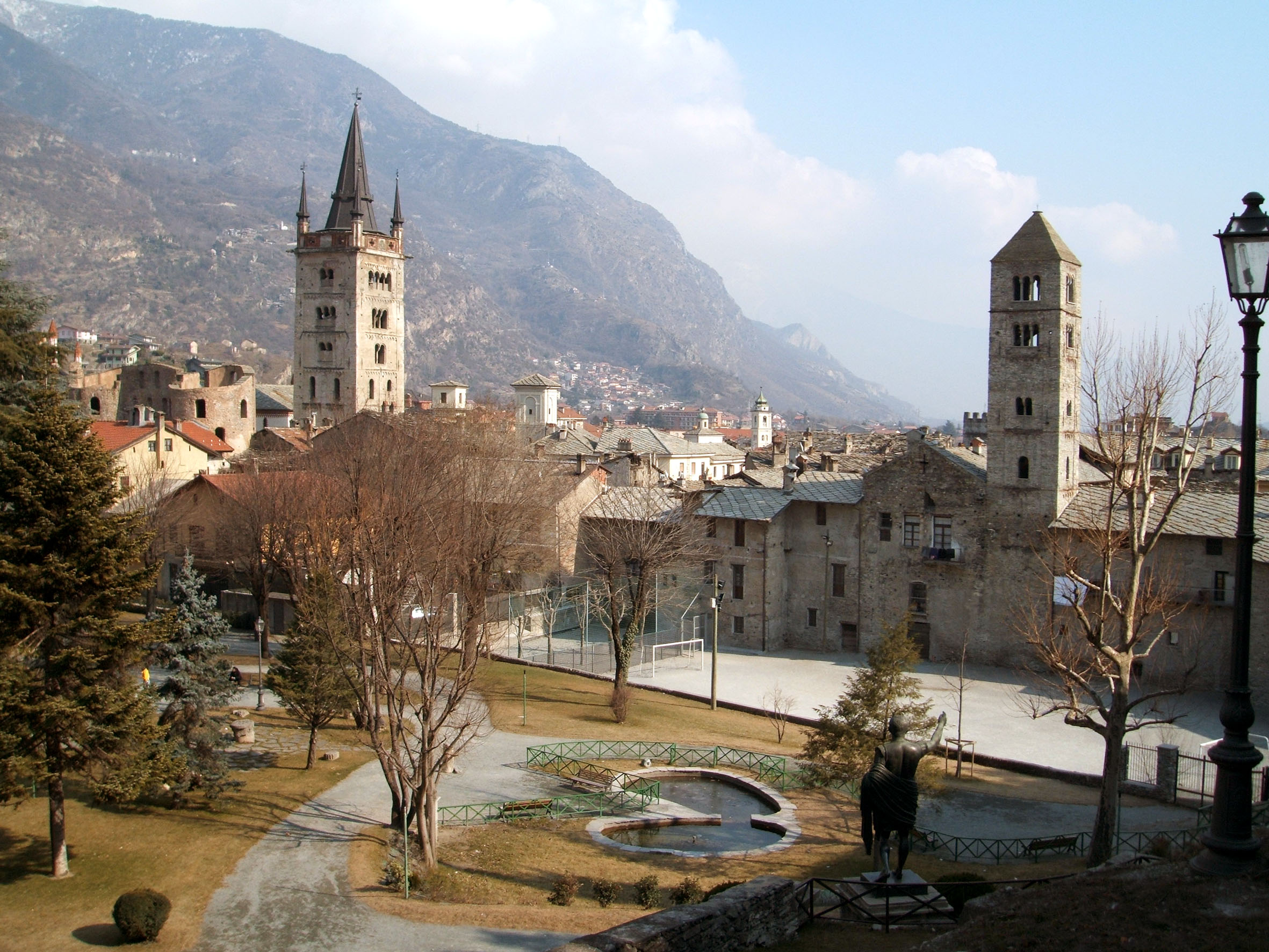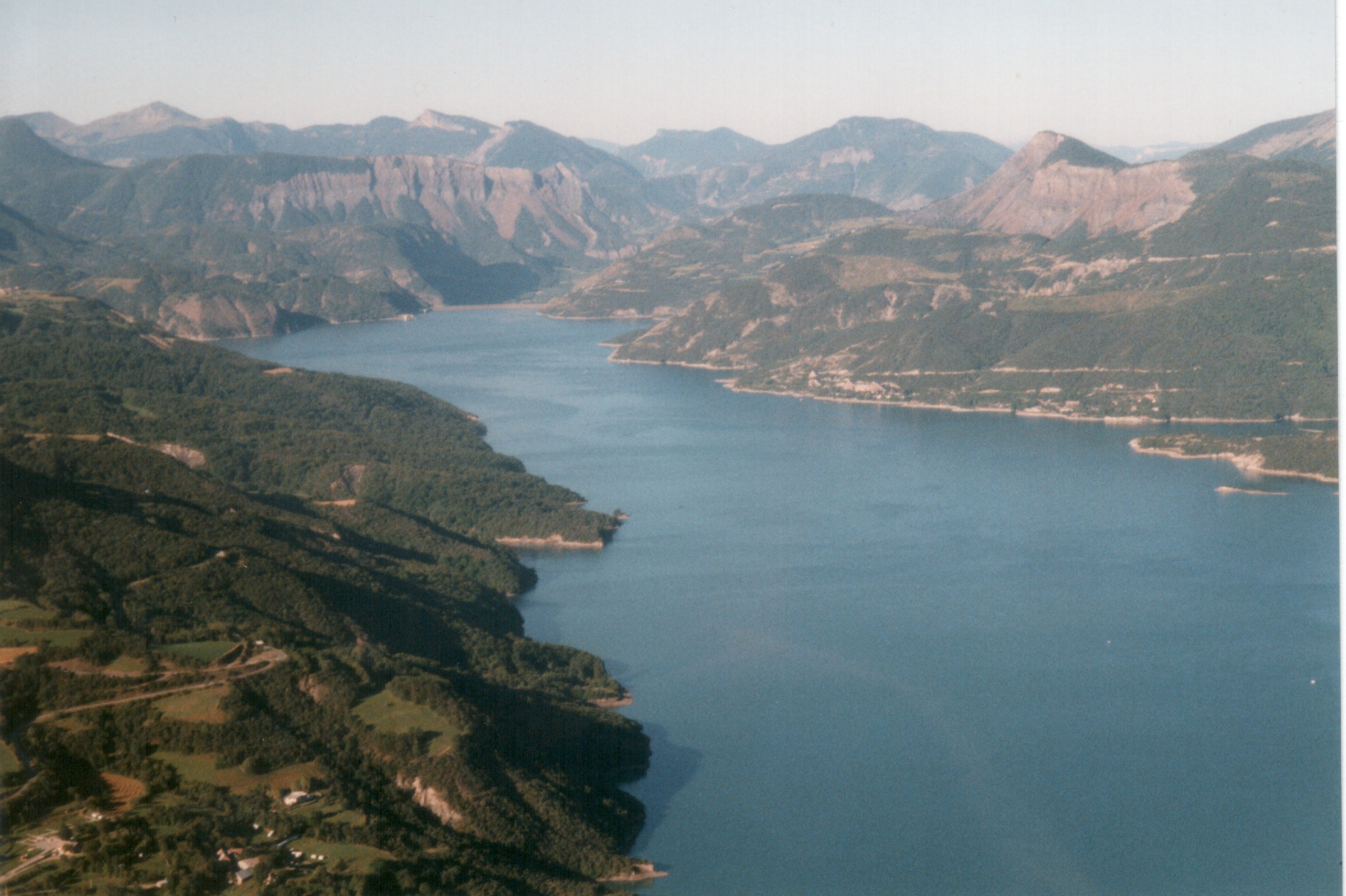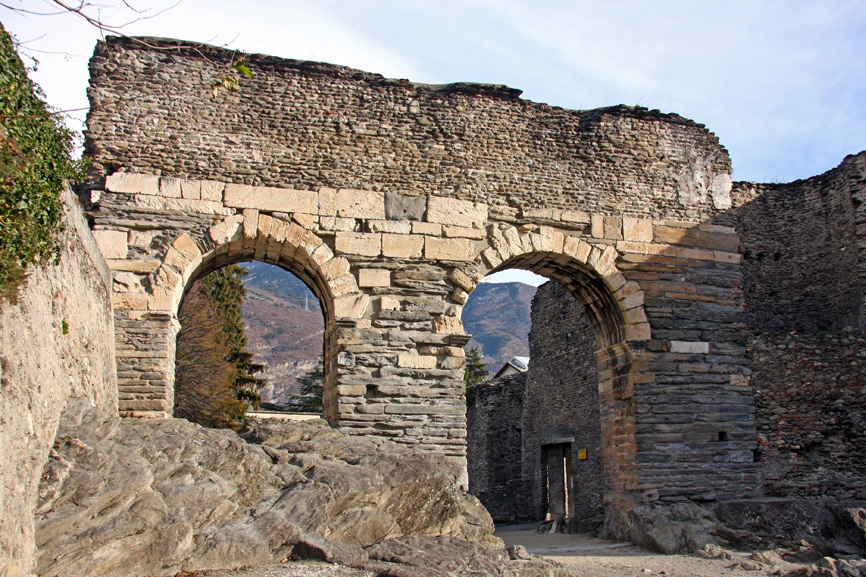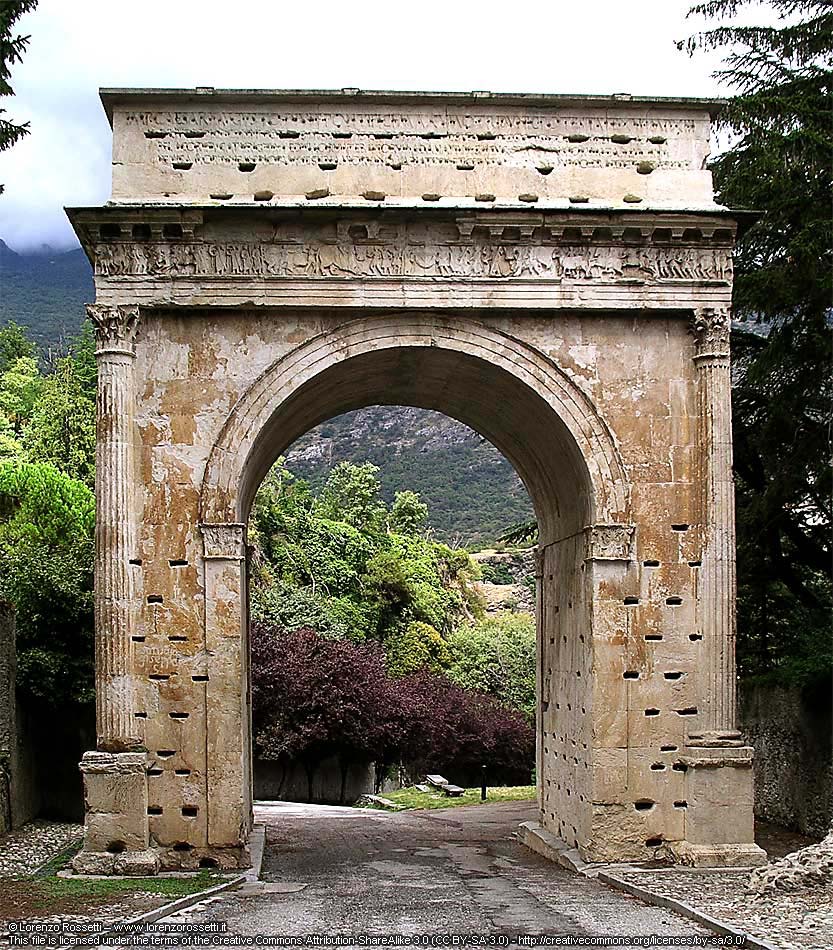|
Donnus
The chieftain called by Latins Donnus was the ruler of the Ligurian tribes inhabiting the mountainous region now known as the Cottian Alps during the 1st century BC. Although initially an opponent of Julius Caesar during the latter's conquest of Gaul, Donnus later made peace with him. Donnus' son and successor, Cottius, initially maintained his independence in the face of Augustus' effort to subdue the various Alpine tribes, but afterwards agreed to an alliance, and the family continued to rule the region as prefects of Rome, until Nero annexed the dominion as the province of Alpes Cottiae. His name was first cited in the Arch of Augustus of Susa engraving. See also * Alpes Cottiae (the original Roman province) * Cottian Alps * Cottius * Arch of Augustus (Susa) * Susa, Piedmont Susa ( lat, Segusio, french: Suse, frp, Suisa) is a town and ''comune'' in the Metropolitan City of Turin, Piedmont, Italy. In the middle of Susa Valley, it is situated on at the confluence of th ... [...More Info...] [...Related Items...] OR: [Wikipedia] [Google] [Baidu] |
Cottius
Marcus Julius Cottius was King of the Celtic and Ligurian inhabitants of the mountainous Roman province then known as '' Alpes Taurinae'' and now as the Cottian Alps early in the 1st century BC. Son and successor to King Donnus, he negotiated a dependent status with Emperor Augustus that preserved considerable autonomy for his country, making him a Roman governor, and adopted Roman citizenship. Early relationship with Rome The friendship between Cottius's realm and Rome goes back at least to the reign of his father King Donnus; there is numismatic evidence which suggests that Donnus established friendly relations with Julius Caesar. As Caesar needed to cross the Cottii Regnum in 58 BC on his way to Gaul, he made an agreement with King Donnus to have his troops transported on his road as well as having a new paved road being built.Cornwell, H., Alpine Reactions to Roman Power, in Varga, R., Rusu-Bolindeț, V., (eds) Official Power and Local Elites in the Roman Provinces, p. ... [...More Info...] [...Related Items...] OR: [Wikipedia] [Google] [Baidu] |
Alpes Cottiae
The Alpes Cottiae (; English: 'Cottian Alps') were a small province of the Roman Empire founded in 63 AD by Emperor Nero. It was one of the three provinces straddling the Alps between modern France and Italy, along with the Alpes Graiae et Poeninae and Alpes Maritimae. The capital of the province was Segusio (modern Susa, Piedmont). Other important settlements were located at Eburodunum and Brigantio (Briançon). Named after the 1st-century BC ruler of the region, Marcus Julius Cottius, the toponym survives today in the Cottian Alps. History The province had its origin in a local chiefdom controlled by the enfranchised king Marcus Julius Donnus, who ruled over Ligurian tribes of the region by the middle of the 1st century BC. He was succeeded by his son, Marcus Julius Cottius, who offered no opposition to the integration of his realm into the Roman imperial system under Emperor Augustus in 15–14 BC, then kept on ruling on native tribes as a ''praefectus civitatium'' of ... [...More Info...] [...Related Items...] OR: [Wikipedia] [Google] [Baidu] |
Cottian Alps
The Cottian Alps (; french: Alpes Cottiennes ; it, Alpi Cozie ) are a mountain range in the southwestern part of the Alps. They form the border between France (Hautes-Alpes and Savoie) and Italy (Piedmont). The Fréjus Road Tunnel and Fréjus Rail Tunnel between Modane and Susa are important transportation arteries between France (Lyon, Grenoble) and Italy (Turin). Etymology The name ''Cottian'' comes from '' Marcus Julius Cottius'', a king of the tribes inhabiting that mountainous region in the 1st century BC. Under his father Donnus, these tribes had previously opposed but later made peace with Julius Caesar. Cottius was succeeded by his son Gaius Julius Donnus II (reigned 3 BC-4 AD), and his grandson Marcus Julius Cottius II (reigned 5-63 AD), who was granted the title of king by the emperor Claudius. On his death, Nero annexed his kingdom as the province of Alpes Cottiae. History For a long part of the Middle Ages the Cottian Alps were divided between the Duchy of Savo ... [...More Info...] [...Related Items...] OR: [Wikipedia] [Google] [Baidu] |
Arch Of Augustus (Susa)
The Arch of Augustus is an important monument constructed in the city of Susa, Piedmont, in the province of Turin. It was originally built at the end of the 1st century BC to record the renewed alliance between Emperor Augustus and Marcus Julius Cottius, a Celto-Ligurian ruler who had been made king and Roman prefect of the Cottian Alps. The arch, together with other remains from the period, such as the Roman amphitheatre and a Roman aqueduct, underscore the importance that the city of Susa had during the Roman period. Description From above, the arch forms a rectangle 11.93 metres long and 7.3 metres wide. It rests on two large bases and there is only one archway. The white marble of the arch was sourced from a nearby quarries at Fornesto and Tre Piloni. The arch has a unique arcade, in which the archivolt is supported by pilasters. The entablature rests on four Corinthian columns placed at the extremities of each corner, such that a quarter of each drum is embedded in the m ... [...More Info...] [...Related Items...] OR: [Wikipedia] [Google] [Baidu] |
King
King is the title given to a male monarch in a variety of contexts. The female equivalent is queen, which title is also given to the consort of a king. *In the context of prehistory, antiquity and contemporary indigenous peoples, the title may refer to tribal kingship. Germanic kingship is cognate with Indo-European traditions of tribal rulership (c.f. Indic '' rājan'', Gothic '' reiks'', and Old Irish '' rí'', etc.). *In the context of classical antiquity, king may translate in Latin as '' rex'' and in Greek as ''archon'' or ''basileus''. *In classical European feudalism, the title of ''king'' as the ruler of a ''kingdom'' is understood to be the highest rank in the feudal order, potentially subject, at least nominally, only to an emperor (harking back to the client kings of the Roman Republic and Roman Empire). *In a modern context, the title may refer to the ruler of one of a number of modern monarchies (either absolute or constitutional). The title of ''king'' is u ... [...More Info...] [...Related Items...] OR: [Wikipedia] [Google] [Baidu] |
Ligures
The Ligures (singular Ligur; Italian: liguri; English: Ligurians) were an ancient people after whom Liguria, a region of present-day north-western Italy, is named. Ancient Liguria corresponded more or less to the current Italian region of Liguria. However, this region was much larger than today's borders. To the north the boundary was the Po river in present-day Piedmont, to the west it was the Var river in the Alpes Maritimes, to the east it was the Magra river as is still the case . And to the south, the region has been bordered since the dawn of time by the Ligurian Sea. This region is therefore very mountainous including the south of the Alps and the Ligurian Apennines. Little is known about the ancient language of the Ligurians because there are no known written records or inscriptions in it, and because it is not known where the ancient Ligurian people originally came from, an autochthonous origin is increasingly probable. This mysterious alphabet is found t ... [...More Info...] [...Related Items...] OR: [Wikipedia] [Google] [Baidu] |
Paganism
Paganism (from classical Latin ''pāgānus'' "rural", "rustic", later "civilian") is a term first used in the fourth century by early Christians for people in the Roman Empire who practiced polytheism, or ethnic religions other than Judaism. In the time of the Roman empire, individuals fell into the pagan class either because they were increasingly rural and provincial relative to the Christian population, or because they were not '' milites Christi'' (soldiers of Christ).J. J. O'Donnell (1977)''Paganus'': Evolution and Use ''Classical Folia'', 31: 163–69. Alternative terms used in Christian texts were ''hellene'', ''gentile'', and ''heathen''. Ritual sacrifice was an integral part of ancient Graeco-Roman religion and was regarded as an indication of whether a person was pagan or Christian. Paganism has broadly connoted the " religion of the peasantry". During and after the Middle Ages, the term ''paganism'' was applied to any non-Christian religion, and the term presumed ... [...More Info...] [...Related Items...] OR: [Wikipedia] [Google] [Baidu] |
Augustan Arch, Susa
Augustan is an adjective which means pertaining to Augustus or Augusta. It can refer to: * Augustan Age (other) * Augustan literature (ancient Rome) * Augustan prose * Augustan poetry * Augustan Reprint Society *Augustan literature * Augustan History * Augustan drama * Augustan Society *A current or former resident of Augusta, Georgia See also * Legio I Augusta or First Augustan Legion *Legio II Augusta or Second Augustan Legion *Legio III Augusta or Third Augustan Legion *Gemma Augustea or Augustan jewel *Arch of Augustus (other) or Augustan Arch * Closed couplet or Augustan couplet *Heroic couplet or Augustan heroic couplet *Ara Pacis The Ara Pacis Augustae (Latin, "Altar of Augustan Peace"; commonly shortened to Ara Pacis) is an altar in Rome dedicated to Pax, the Roman goddess of Peace. The monument was commissioned by the Roman Senate on July 4, 13 BC to honour the return o ... or Altar of Augustan Peace * Augsburg Confession or Augustan Confession { ... [...More Info...] [...Related Items...] OR: [Wikipedia] [Google] [Baidu] |
Julius Caesar
Gaius Julius Caesar (; ; 12 July 100 BC – 15 March 44 BC), was a Roman general and statesman. A member of the First Triumvirate, Caesar led the Roman armies in the Gallic Wars before defeating his political rival Pompey in a civil war, and subsequently became dictator from 49 BC until his assassination in 44 BC. He played a critical role in the events that led to the demise of the Roman Republic and the rise of the Roman Empire. In 60 BC, Caesar, Crassus and Pompey formed the First Triumvirate, an informal political alliance that dominated Roman politics for several years. Their attempts to amass power as were opposed by the within the Roman Senate, among them Cato the Younger with the frequent support of Cicero. Caesar rose to become one of the most powerful politicians in the Roman Republic through a string of military victories in the Gallic Wars, completed by 51 BC, which greatly extended Roman territory. During this time he both invaded Britain an ... [...More Info...] [...Related Items...] OR: [Wikipedia] [Google] [Baidu] |
Gaul
Gaul ( la, Gallia) was a region of Western Europe first described by the Romans. It was inhabited by Celtic and Aquitani tribes, encompassing present-day France, Belgium, Luxembourg, most of Switzerland, parts of Northern Italy (only during Republican era, Cisalpina was annexed in 42 BC to Roman Italy), and Germany west of the Rhine. It covered an area of . According to Julius Caesar, Gaul was divided into three parts: Gallia Celtica, Belgica, and Aquitania. Archaeologically, the Gauls were bearers of the La Tène culture, which extended across all of Gaul, as well as east to Raetia, Noricum, Pannonia, and southwestern Germania during the 5th to 1st centuries BC. During the 2nd and 1st centuries BC, Gaul fell under Roman rule: Gallia Cisalpina was conquered in 204 BC and Gallia Narbonensis in 123 BC. Gaul was invaded after 120 BC by the Cimbri and the Teutons, who were in turn defeated by the Romans by 103 BC. Julius Caesar finally subdued the remaining parts of Gau ... [...More Info...] [...Related Items...] OR: [Wikipedia] [Google] [Baidu] |
Caesar Augustus
Caesar Augustus (born Gaius Octavius; 23 September 63 BC – 19 August AD 14), also known as Octavian, was the first Roman emperor; he reigned from 27 BC until his death in AD 14. He is known for being the founder of the Roman Principate, which is the first phase of the Roman Empire, and Augustus is considered one of the greatest leaders in human history. The reign of Augustus initiated an imperial cult as well as an era associated with imperial peace, the '' Pax Romana'' or ''Pax Augusta''. The Roman world was largely free from large-scale conflict for more than two centuries despite continuous wars of imperial expansion on the empire's frontiers and the year-long civil war known as the " Year of the Four Emperors" over the imperial succession. Originally named Gaius Octavius, he was born into an old and wealthy equestrian branch of the plebeian ''gens'' Octavia. His maternal great-uncle Julius Caesar was assassinated in 44 BC, and Octavius was named in Cae ... [...More Info...] [...Related Items...] OR: [Wikipedia] [Google] [Baidu] |
Praefect
''Praefectus'', often with a further qualification, was the formal title of many, fairly low to high-ranking, military or civil officials in the Roman Empire, whose authority was not embodied in their person (as it was with elected Magistrates) but conferred by delegation from a higher authority. They did have some authority in their prefecture such as controlling prisons and in civil administration. Praetorian prefects The Praetorian prefect (''Praefectus praetorio'') began as the military commander of a general's guard company in the field, then grew in importance as the Praetorian Guard became a potential kingmaker during the Empire. From the Emperor Diocletian's tetrarchy (c. 300) they became the administrators of the four Praetorian prefectures, the government level above the (newly created) dioceses and (multiplied) provinces. Police and civil prefects *''Praefectus urbi'', or '' praefectus urbanus'': city prefect, in charge of the administration of Rome. *''Praefectus vigil ... [...More Info...] [...Related Items...] OR: [Wikipedia] [Google] [Baidu] |





_b_016.jpg)

